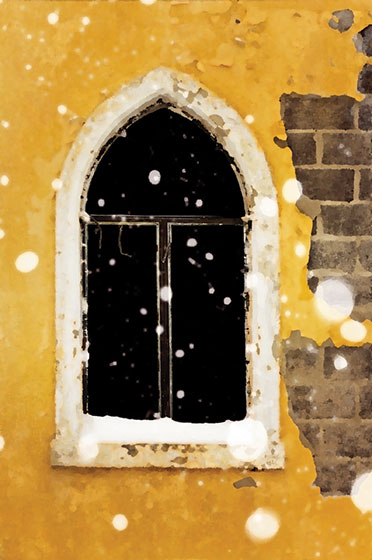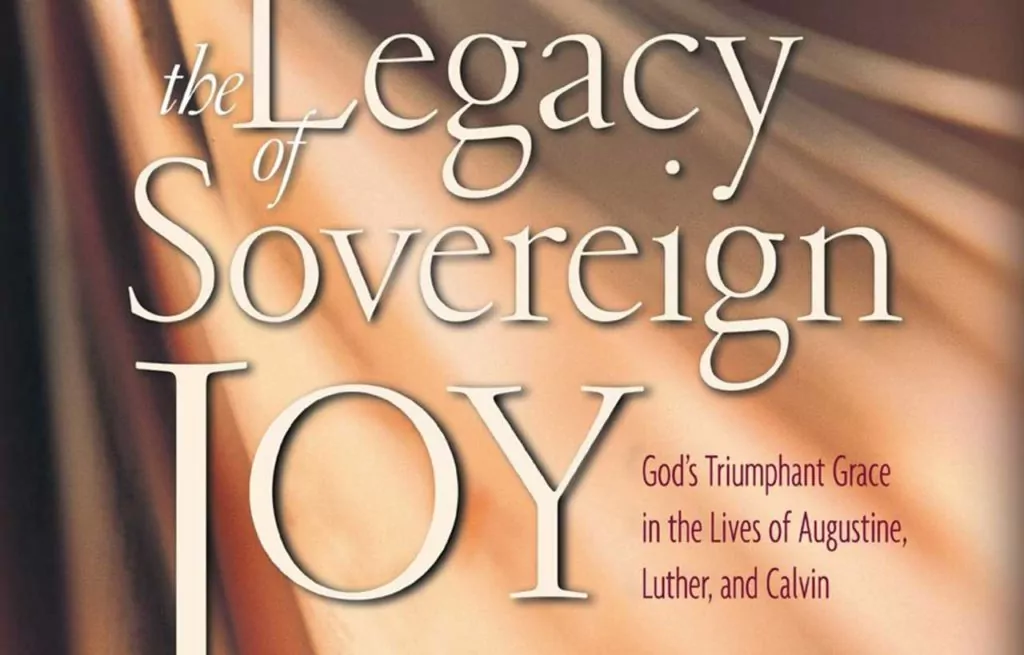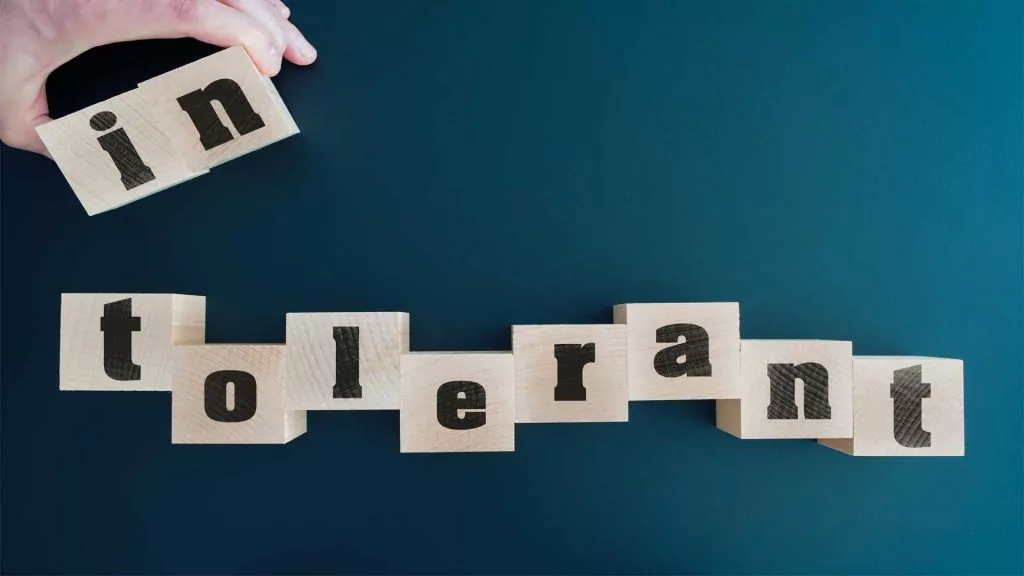Where were you when I laid the earth’s foundation?
Tell me, if you understand.
Who marked off its dimensions? Surely you know!
Who stretched a measuring line across it?
On what were its footings set,
or who laid its cornerstone –
while the morning stars sang together
and all the angels shouted for joy?
– Job 38:4-7
Chapter 1
There are innumerable, worthy symphonies which have been composed over the ages. Think of Beethoven’s Eroica symphony, Handel’s Pastoral in his great work The Messiah, Mendelsohn’s Scottish symphony, Haydn’s Clock symphony, and many other amazingly wonderful works of music. But the oldest and most beautiful of all symphonies is often forgotten.
Entitled Ephesians 1, it was written by the Trinity. An orchestration wrought before the beginning of time, it is a harmony par excellence. Its arrangement, which is found in the Holy Book, sings of the chosen ones, the ones who are blessed in the heavenly realms with every spiritual blessing in Christ. Its first performance took place in eternity.
Preludes resound.
****
When little Marsha Tennison enthusiastically raised her hand towards the ceiling to ask a question, even her thin pigtails danced with earnestness. “Pigtails,” Jason Brook mused, even as he nodded his head that she might speak, was a strange term. Little Marsha was anything but a piglet. The wispy curls which escaped from both her red barrettes were auburn; red freckles jumped about on her cheeks; and her bright, blue eyes were filled with joy at being allowed to talk.
“If the stars,” the child began clearly in a well-modulated voice, “are the work of God’s fingers, then He must be really big. But my eyes are not big enough to see all of the stars at night.”
She stopped for a moment and caught her breath before continuing. “I was thinking that it would be a wonderful thing if you could catch a bus and climb up into the sky to get closer to the stars. You know, like Jacob’s ladder.”
Her voice petered out. Some of the children were giggling. The sound subdued her somewhat. “We will see God, I know,” she added in a much lower tone, “when we die.”
Samantha, one seat over from Marsha, gasped audibly. She was a sweet child too, but one steeped into supposing that a person could climb into heaven on a Ten Commandments ladder, certainly not on a bus resembling a Jacob’s ladder. It was well-nigh three thirty and almost time to go home. Bible was the last subject on the agenda.
“It’s a good thought, Marsha,” Jason encouraged “And anyone who has ever looked at the multitude of stars at night will understand what you were saying.”
Marsha beamed and settled back in her desk. She held one of her long, thin braids between the fingers of her right hand. A trusting eleven, as were most of the children in his Bible class, she was a dreamer. Jason smiled at the sea of upturned faces. Half of the faces were focused on him; the other half were focused on the clock.
“If any of you think God is small, then surely you will not expect Him to be able to do great things. But if you think, or rather know, that He is big, ” he added, “and that the stars are the work of His fingers, then you will believe He can do mighty things. When we die,” he went on, “we will see Him as He is. Even though we can’t understand how that will be, Marsha, we know it is true because the Bible tells us so.”
Samantha raised her hand and spoke quickly, almost before he could nod permission.
“But God is not a person, pastor Brook, so how can anyone think of Him as, well, as just plain big? Isn’t that wrong?”
“Well, you are right in one way, Samantha. God Almighty is not a person as we are, although we should never forget that He took on our flesh in the Person of Jesus Christ. I think though, that what Marsha meant by her question was that God is mighty beyond what we can physically see and understand? I think she tried to say,” and here he looked straight at Marsha who moved her head up and down vigorously all the while clasping one of her brown braids, “that it is amazing that the stars which are so high above our heads, were formed by the words of God’s mouth and that the Bible actually calls the stars the work of His fingers. And how can it be possible that we, little and sinful people that we are, will eventually be able to see such a mighty and holy God.”
Marsha blushed. They were fine words, the words of pastor Brook. She felt them inside but could not always iterate them clearly. But he had read her question rightly. Those were matters she thought about a lot. She would like to ask him to explain more things, but she dare not ask them now lest Samantha criticize that as well. Perhaps later. Her teacher winked at her and she blushed again.
“We have a very mighty God, Marsha,” he added, “and He does not mind what we ask, as long as we ask questions on our knees, full of reverence.”
“Can we ask Him anything?” Samantha suddenly said, not even raising her hand.
“Yes,” Jason responded quietly and confidently, “anything at all as long as we ask sincerely and according to what He wills.”
Another hand shot up. This time it was Penny, a twelve-year-old going on eighteen. When she had been given permission to speak, her truculent voice struck the wooden desks with a certain amount of bravado. “Well, I’d like to ask Him to give you a wife, pastor Brook.”
A stillness descended on the classroom. Little Marsha stopped fidgeting with her braid and anxiously scanned her teacher’s face for his reaction. Samantha turned around to raise her eyebrows at Penny. But Penny, unperturbed, went on. “I’d like to ask Him to give you a wife who doesn’t mind that you limp. You need some looking after and your mother is getting older. Besides, everyone says a pastor shouldn’t be a bachelor.”
Jason held up his hand at this point to stop the inappropriate waterfall of words gushing out of Penny’s mouth. He smiled at her even as he grimaced inside. “Thank you, Penny, for your concern. That’s very kind of you.”
Everyone stared at him – the girls sympathetically and the boys uneasily. He closed in prayer and then they trooped out.
****
It was mid-June and nearing summer vacation. Jason Brook taught two Bible courses at the local Christian academy every Friday afternoon. His first class consisted of the fourteen and fifteen-year-olds whereas the second class was comprised of eleven through thirteen year olds.
“Pastor?”
He startled and then smiled broadly. It was little Marsha who had returned to the room. There was no denying that she was one of his favorite students. She lived in his neighborhood and he often spoke with her. “Thank you for teaching me…. for teaching me that you can talk to God about anything. You are so helpful. And you know what,” she added softly, “I never notice that you limp.”
She flashed a grin at him and then she was gone, brown braids spindling behind her. Jason stood still for a moment, a small frown on his face. Even coming from a sincere child, a child who meant to comfort and build him up, the words hurt somewhat. He was thirty-six years old and in the sudden stillness of the classroom after Marsha’s departure, he could hear his mother’s voice, could hear it as clearly as if she were standing next to him. “You have a false sense of pride, son.”
She’d said those words to him just last week, just before informing him that Gena Ardwick, the daughter of an old friend, had been invited by her for a few day’s visit. His face must have shown dislike and apprehension because that’s when he had been reproved. “You immediately suspect I’m setting you up and you retreat behind that shell of yours. There is no sin in having friends, Jason, and you need not look for me to be matchmaking behind every tree.”
“You are right, mother,” he had sighed, “and I apologize. I’ll be a good host, I promise.
****
Later, after straightening out his desk and cleaning the blackboard, he picked up his briefcase and began his walk towards the bus stop. People, he reflected, as well as adults, were often most comfortable with the status quo, with the way things were always done. There was no denying that he sometimes fell outside the accepted status quo. Perhaps his childhood polio endowing him with this uneven gait, or perhaps the early loss of his father, had marked him. Yet these events had not been bad, he mused on, but rather had worked for his good, for had they not made him depend on His Creator more and more?
He breathed in deeply. Sure he prayed for a wife, prayed punctually as one might pray for good weather. But if it rained, the truth was that he was quite content to sit at home and read a good book, or to take a walk under an umbrella.
He vaguely remembered Gena Ardwick, the girl who would be stopping in to see his mother today. She had lived next door to his family years ago when he had been a boy about the age that little Marsha was right now. Gena had been a snippy, self-willed girl, if he recalled correctly, and he had not cared for her. She’d always been ready with an opinion and she had not liked either dogs or cats. Strange that he should remember the part about pets.
Unconsciously he shrugged as he walked. In spite of his mother’s protestations to the opposite, there had been questionable female visitors in the past: a far-off distant cousin afflicted with a slight stutter; the organist’s older sister over for holidays from Amsterdam; and the neighbor’s orphaned, sewing pupil. He suddenly laughed out loud, switched the briefcase to his other hand and chided himself for brooding.
****
There were no other people waiting at the bus stop. Setting down his briefcase, Jason unashamedly stretched his tall form. Friday afternoons could prove to be long, even trying, but he enjoyed them – enjoyed the teaching and the interaction which he had with his students, even students like aggressive Penny.
Glancing at his watch, he expected that the bus would be along shortly. He’d known the bus driver for years. Sure enough, rounding the corner right on time, the front end of a grey bus turned towards him. Automatically he picked up his briefcase with his right hand while his left hand reached for a bus token in his pants’ pocket. The bus smoothly slid to a stop in front of him and the door opened.
“How’re you doing, Jake?”
“Great! And yourself, Jason?”
“Fine.”
Smiles were exchanged and Jason habitually walked towards the seat where he was wont to sit. Only…someone else was sitting there.
It was a woman wearing a dark blue hat, a light blue sweater and a grey skirt. He saw this all in one glance. She nodded slightly when he caught her eye, moving past to a seat behind her. It miffed him a trifle that she was sitting in his spot, but he knew this was bordering on the ridiculous. Public transport was just that, public transport and the public could sit wherever they pleased.
Ten minutes later he stood up. His stop was next. He’d always counted it a blessing that he lived only a few houses away from the bus stop, especially during bad winter weather. The woman stood up with him simultaneously. She picked up a small leather suitcase from the floor and eased into the aisle in front of him walking towards the exit door. He could smell a faint scent of jasmine exuding from her person. The bus came to a halt. Stepping down, the woman turned in the direction of his house, leather suitcase dangling from her right hand.
It came to him suddenly, as he followed her steps, that this woman could be Gena Ardwick. But his mother had gone to pick her up at the train station in South Hanker. Maybe mother had missed connecting with Gena and the girl had taken matters into her own hands.
 Sure enough, she was slowing down and peering at house numbers. Then, before Jason’s very eyes, her heel caught in a crack of cement causing her to stumble and fall. The incident occurred right in front of his home. The small suitcase flew out of her hand and landed neatly at her side, but as he hobbled up behind to reach her, the girl had already scrambled back to her feet.
Sure enough, she was slowing down and peering at house numbers. Then, before Jason’s very eyes, her heel caught in a crack of cement causing her to stumble and fall. The incident occurred right in front of his home. The small suitcase flew out of her hand and landed neatly at her side, but as he hobbled up behind to reach her, the girl had already scrambled back to her feet.
“Hey, are you all right?”
She nodded, but he noticed a shining in her eyes – unshed tears just like the ones his students blinked back after they had been given a very low mark or had inadvertently tripped over someone’s feet in class. Reaching over to pick up her suitcase and putting her full weight on her left foot, the woman gave a small cry of pain
“I think you better lean on me.”
Unquestioningly she took the arm he offered, reinforcing his notion that she was indeed Gena Ardwick. A surge of protectiveness washed over him. Shuffling up the sidewalk as she held on to him, she didn’t say a word.
“What providence,” he said, glancing at her as he spoke, “that I was just behind you, Gena.”
She stared up at him. But then another tremor of pain passed over her face.
“I hope you didn’t break anything,” Jason went on, “We’d better get you to sit down quickly so we can have a look.”
****
It was quiet in the hallway and the cat ran down the stairs to meet them, rubbing up against Jason’s legs.
“This way to the living room, Gena,” Jason spoke softly, “and I hope you don’t mind cats now. Harry is a people cat and hates it when I’m gone. ”
She shook her head as he led her through the hallway door into the living room, carefully sitting her down on the edge of the couch. Resting back, she smiled up at him wanly, her face very white.
“I think I’ll put on the kettle for a cup of tea. Just sit for a minute before we have a look at that foot.”
Propping up a pillow behind her back as he spoke, Jason expertly pushed a footstool in front of the couch. “There you are. Can you lift your foot up on it?”
She obliged and Harry jumped onto the couch next to her. It brought a tiny smile to her face and somehow this pleased Jason a great deal. He disappeared into the kitchen and pondered his next move. Hopefully, mother would be home soon and that would take the onus off himself. The situation was a bit awkward. She hadn’t said a word so far and she was also a bit chunky or, as his mother would say, pleasingly plump.
The doorbell rang. Now who could that be? Striding back to the front door, he was surprised to see little Marsha standing on his steps. Grinning broadly, she was holding a tray of cookies in her hands. She lived only a few doors down from him. “My foster mother made these for you, pastor Brook, because you taught me all year and because you visit all the time.”
“Well, thank you, and please thank your foster mother. That’s very kind of you both.”
A luminous idea struck him. He gestured that she step inside and when she happily obliged, he walked her past the closed living room door leading the child into the kitchen. Once there he spoke in a low tone.
“Marsha, I have a visitor in the living room and she’s hurt her ankle. She’s my mother’s friend and will be a guest here for a few days. Would you mind helping me with her for a little while?”
The girl was all smiles and nodded eagerly. “No, pastor Brook, I wouldn’t mind that at all.”
“Thanks, Marsha, I appreciate that very much.”
He pointed towards the living room and she immediately stepped back into the hallway, making her way to the living room. He followed her. Opening the door, they could see Gena bending over, trying rather unsuccessfully to take off her shoe. Marsha lost no time. She was by the couch and on her knees in a trice. Assisting nimbly, her small fingers undid the buckles, even as she spoke in a low tone. “My name is Marsha, but most people call me little Marsha because I’m not as big as I should be. What’s your name?”
“Gena.” It came out softly and it was the first word Jason heard her say. So he had been correct then in surmising that she was his mother’s guest.
“Gena’s a real nice name,” Marsha went on, “and look, your shoe’s off and that’s good because I think your foot’s a bit swollen. I can see it through your nylon stocking. Hope it doesn’t hurt too much.”
Arnica, thought Jason who was still standing in the hallway door, mother’s arnica in the medicine cabinet would help right now. Turning, he made his way to the bathroom and checked cupboards until he found the arnica tube. To his disappointment, it was almost empty. He’d have to go to the pharmacy for a new tube. Maybe he should also offer aspirin with the tea for pain? He slowly walked back into the living room.
“Her foot’s not broken, pastor Brook,” Marsha called out cheerfully from the couch while stroking the cat’s head, “You can wiggle your toes, can’t you Gena?”
Gena nodded.
“That’s fine,” Jason said, very much relieved, “but I think I’ll walk over to the pharmacy anyway to pick up some arnica. It’s a good remedy for bruising and swelling. I can see from here you might have a bit of a bruise.”
Gena shook her head. “There’s no need for you to do that,” she protested weakly.
“Not a problem,” Jason waved away her protest, “Little Marsha, can you stay here until I come back? You can put the kettle on for tea and you know where the mugs are. You can also serve some of the cookies you brought along.”
The girl nodded eagerly. “Sure thing. And I’ll phone Aunt May to let her know I’m helping out.”
Chapter 2
The symphony of Ephesians 1has a recurring theme. The consonance which weaves through its melody is that of predestination. With singleness of purpose, the notes, again and again, point to children adopted through Jesus Christ in accordance with His pleasure and will.
We don’t always hear a theme until it is pointed out. But the truth of it is that election reverberates throughout Ephesians 1.
****
 After little Marsha had telephoned her foster mother, she asked Gena if she wanted a cup of tea and a cookie. The woman smiled at the child standing in front of the couch. “You are eager to help. You’re a very kind, little girl.”
After little Marsha had telephoned her foster mother, she asked Gena if she wanted a cup of tea and a cookie. The woman smiled at the child standing in front of the couch. “You are eager to help. You’re a very kind, little girl.”
Marsha dimpled. “Any friend of pastor Brook is a friend of mine. And I’m sorry you hurt your foot. Shall I put pillows under it?”
The doorbell rang.
“Excuse me,” little Marsha said.
She got up from the couch and stepped back into the hallway, leaving the door to the livingroom half-open behind her.
****
There was a coolness in the foyer and the child shivered before she opened the entrance way which Jason had locked behind him. Two women stood on the doorstep. They smiled at Marsha.
“Hello, it’s a nice day isn’t it?” One of the women, portly but gracious, extended the greeting.
“Yes,” Marsha replied.
“Is your mother at home?”
“Yes,” the child answered for the second time and without hesitation, “She is.”
On the couch in the living room, Gena, who could hear each word, winced. The girl was lying. That was a whopper.
“Can we speak to her?”
“No, I’m afraid you can’t.”
The second of the two women coughed delicately into a hanky.
“And why will you not let us speak to your mother?”
“Because she’s in heaven with the Lord Jesus.”
There was silence on the doorstep for a long moment. Shifting her position on the couch slightly as she leaned forward, Gena strained her ears.
“I know,” Marsha’s voice reached her, “that you are Jehovah Witnesses because you come down the street a lot and start by saying that the weather is nice. Pastor Brook has told me to be careful about you.”
There was another silence and then one of the women opened her purse, taking out a small tract. “Well, I’m sorry to hear about your mother, honey, but maybe I can leave this little booklet with you.”
Little Marsha put her hands behind her back. “No, thank you,” she answered clearly, “Jesus would not like me to do that. Pastor Brook told me that too. You see you don’t know…. that is, you don’t believe….” She stopped and took out her right hand, fingering one of her braids thoughtfully.
“We don’t know or believe what?” Both of the women responded almost simultaneously, talking through one another and eyeing little Marsha with a mixture of both disdain and interest.
“That Jesus is God,” little Marsha said, finishing her sentence carefully.
“He is a god,” this time the women spoke in unison, the back one trying to read the girl’s face as she stood in poised in the doorway.
Unfazed by their scrutiny, Marsha responded once more. “No, He is not a god. He is the only God there is and we can’t say lies about Him. You see, God says, and I forget where He says it, ‘I am He and there are no gods with Me.’”
The two women looked at one another.
“Pastor Brook told me that too,” little Marsha added as an afterthought, “and you might like to think about that. But now I have to stop talking to you because I’m helping out a friend who has a sore foot.”
The two women turned and began to walk away, the first one shrugging as she left. But the second glanced back over her shoulder, giving Marsha a smile and a little wave. Closing and locking the front door carefully, Marsha made her way back to the kitchen. She plugged in the kettle and leaned against the countertop as she waited for the water to boil. When it did, she pulled the plug and made tea. Carrying a stone mug into the living room, she saw that Gena had taken her foot off the footstool and was gingerly bending over, rubbing it.
“How does it feel? Does it hurt a lot?” she asked sympathetically.
“A little bit, but it’ll be all right, I think.”
Marsha deposited the mug on the end table. “Would you like some sugar and milk with your tea?”
“No, that’s fine. Thank you for your help and for making the tea.”
Marsha sat down on the floor in front of the couch, resting her back against it.
“Tell me about yourself, Marsha.”
Turning her face, Marsha stared up at her. “About myself? There’s not much to tell.”
“Why did you tell the women who came to the door that your mother was home when …. well, when you don’t even live here?” Gena put her foot up on the footstool again as she spoke and reached for the tea.
“Well, my mother is at home. Only her home is in heaven. I did tell them that.”
The clock ticked and Gena folded her hands cautiously around the hot cup of tea.
“I’m sorry, Marsha,” she eventually said, as she put the cup back on the end table, “not having a Mom must be hard.”
“No,” Marsha answered rather matter-of-factly, “you needn’t feel sorry for me, Gena. You see, I’ll be seeing her soon.”
Gena picked the cup up again. “What do you mean?”
“I’ve got…. I mean, I’m sick and right now I’m OK, but the doctor says….” She stopped and Gena could not take her eyes off the child, wispy braids dangling disconsolately on her thin shoulders.
“I’m sorry,” she began again rather lamely, and then stopped.
“No,” little Marsha repeated rather earnestly, “You don’t have to be sorry.”
“Can I comb and braid your hair, Marsha? I used to have long hair myself and I miss doing the braids. Maybe you can borrow a comb out of the bathroom. We just won’t tell anyone.”
Marsha smiled. No one ever offered to braid her hair for her. Her foster mother was too busy and her own fingers were a little messy. She got up and disappeared down the hall, reappearing shortly with a long blue comb.
“That’s great. Now come and sit in front of me.”
Marsha sat on the floor, eyes wide with expectation. Gena had moved the footstool and had positioned her sore foot at its side. Taking a tiny sip of her hot tea before undoing Marsha’s braids, she began untangling the knots in the child’s hair. Marsha blissfully shut her eyes as she leaned her shoulders against the gray skirt. Gena massaged the little scalp with the auburn hair, and listened to the clock ticking as she worked at fashioning a French braid around Marsha’s head.
“Why,” she suddenly heard herself saying, “Why are you not sad, or scared, or well, upset. You don’t seem to be upset, Marsha.”
The girl smiled, her eyes still closed. “Sometimes I am. I really am, “she admitted candidly, “But then I try to remember a story that pastor Brook told me. He heard it, or read it somewhere and then he told it to me.”
“What was the story?”
The child stretched out her legs in front of her and took a deep breath as if she was about to plunge into a pool of water. Gena stopped braiding and listened, her hands resting on the child’s head.
“Well, in the story there was a little girl. Maybe she was my age. This little girl was out on the street, sitting on the doorstep of a house in the middle of the night all alone. Someone came along the street and asked her, ‘Little girl, why are you sitting there? Do you not have a house to live in?’ She said, ‘No, sir, I don’t. I have no home.’ ‘Where is your mother?’ ‘My mother is dead,’ said the little girl. ‘Where is your father, then?’ ‘I have no father,’ she replied. ‘Have you no home at all to which you can go?’ ‘No,’ answered the little girl, and she shivered. You see, Gena, it was night and she was shivering with the cold.”
Marsha stopped and unexpectedly turned her head, causing Gena to cluck in distress as auburn strands of hair flew out of her hands. Marsha apologized, even as she spoke. “I’m sorry to have moved, Gena, but are you not very sorry for this little girl?”
Gena moved her head up and down even while she was trying to sort out the wisps of hair that had broken loose from the French braid. She was, indeed, both puzzled and fascinated by Marsha’s account. Satisfied that her audience was paying attention, Marsha positioned her head forward again and went on.
“Well, I was sorry for this little girl too when pastor Brook told me this story. It was so sad. I think I even cried. Then pastor Brook said to me, ‘In a way many people in the world are like that little girl, Marsha. Although they have a home for their bodies, they have no home for their souls. And at night they sit on the doorsteps of the world and their souls have no place to go.'”
It was quiet for a bit. Gena was intrigued. She prodded the child with her good foot.
“Go on, Marsha. There must be more to this story.”
And Marsha continued. “Then pastor Brook said, ‘I know you love the Lord Jesus, Marsha, and because you love the Lord Jesus, your soul does have a place to go. You have God for a Father and His Son Jesus has made a home for you in heaven where there are many, many rooms for His children.'”
Marsha stopped her narrative again and rubbed her right hand along the carpet.
“Is that the end of the story?” Gena asked in spite of herself.
“No, it isn’t. Only when I get to this part, I often cry, you see, and I don’t like to do that in front of other people. But I’ll tell you the story to the end.”
Marsha’s right hand stopped caressing the carpet and she pushed her shoulders back so that they touched Gena’s stomach.
“Yes?” Gena encouraged.
“Well, I’m guessing you think that I’m the little girl in the story, sort of. But actually, my story is just a bit different. In my story I’m sitting on the doorstep of heaven. An angel stops by and asks me if I have no house to live in and I answer him, ‘Yes, sir, I do have a house. It is my Father’s house and He is making a room ready for me in His house.’ And after I tell the angel that I believe that Jesus is God and that He has died for me on the cross, he smiles and opens the door for me behind the doorstep and tells me that he knows that my room is quite, quite ready.”
Marsha’s voice trembled with the telling of the last sentence and after she stopped speaking there was only silence again and the constant ticking of the clock.
“I see.” But Gena didn’t see. Her hands came away from the hair and rested in her lap. The flat-bosomed, trusting eleven-year-old sitting on the floor in front of her, with a tiny French braid crisscrossing her head, suddenly seemed lovely beyond comparison. Inexplicably she was jealous. She could not fathom it.
“Maybe you will get better,” she offered, “and then you will not….”
But she didn’t finish the sentence, because she didn’t know how to finish it. Marsha turned and looked up at her.
“Are you all right? Is your foot throbbing?”
“No, actually it is feeling quite a bit better and I should be going now. I’ve stayed way too long as it is.”
“Stayed too long?”
Marsha’s voice was surprised and she scrambled to her feet even as she continued to speak. “But you just got here. And pastor Brook’s gone to get some medicine to put on your bruise to help you. And his mother is not even home yet.”
“But I think I can walk now,” Gena answered, and to prove it she stood up as well.
Indeed, her leg was able to bear weight and she took a few steps.
“But where are you going? Are you not supposed to stop and visit here for a few days?”
“No, whatever made you think that?”
“Pastor Brook. He told me you had come to visit his mother for a few days. She should be home soon, I think.”
“His mother! But I don’t even know his mother and I don’t know pastor Brook either.”
“But you came into their house!?” Marsha could not comprehend the way things were going. She watched in amazement as Gena slowly but purposely limped towards the front door.
“But why did you come in if you didn’t know who lived here?”
Gena’s fingers were wrapped around the door handle. “I don’t understand it myself, little Marsha. I think it was because he knew my name.”
“Your name?”
“Yes.” Gena winced even as she spoke. “And now, little girl, perhaps you can call me a taxi.”
Chapter 3
Sometimes the Ephesians1 theme appears to be lost. Raucous notes and cacophony seem to drown out the sweeter airs. But, as in many musical compositions, there is frequently a coda, a conclusion, a postscript, a postlude as it were. And the Ephesians1postlude is praise – praise of the glory of the grace of God. Listen carefully.
****
It was only a half a year later that little Marsha’s funeral took place. Conducted by pastor Brook, it was in the church he shepherded.
There were not very many people who came to the funeral. The school Marsha had attended, the same school at which Jason taught Bible every Friday afternoon, did come out in full number. The children and teachers had been given leave and they sat in the front pews. As well, a few members of the congregation showed up. Some had known little Marsha; others were curious.
The coffin stood in front of the pulpit. It was a small coffin. Made of white pine, smooth and shiny, it would not be very heavy for the pallbearers. It was snowing lightly outside and Jason’s text fell with the snow: “For it is by grace you have been saved, through faith – and this not from yourselves, it is the gift of God.”
“Little Marsha had faith,” Jason said and his voice faltered.
It faltered because even as he spoke he could not fathom why this child, who had been so wholly trusting in her Lord, might not have lived a longer life, might not have had the possibility of being a mother in Israel. Of such, indeed, they had much need. He studied the young faces in front of him, and he preached. He preached the Gospel of Jesus Christ. He always did. But the why of the coffin continued to confound him even as he spoke. And through his sentences he saw a little girl with two wispy, auburn braids dancing her way up his sidewalk to tell him some new wonder that she had thought of during that day.
****
Afterwards, when the “amen” had fallen, opportunity was given for classmates and others to speak. Jason issued the invitation and waited. A long silence hung over the sanctuary. He did not think it likely that any of the children would come forward and certainly did not expect any of the adult members to speak. So few had really known little Marsha.
But just as he was about to conclude the service, a figure at the back of the church stood up and began a lonely trek towards the front. Jason strained his eyes. It was a woman and he did not know whom it was. He did not recognize her and neither did any of the people in the pews. They all watched her advance. She was uneasy. Everyone could sense it in her uncertain gait and yet she continued her walk to the pulpit. Having reached it, she sighed, glanced upward and proceeded to climb the steps. The lectern seemed to give her some measure of security, for she gripped the wood with both hands. It was only when Jason handed her the microphone and caught the scent of jasmine, that he remembered her.
“Hello,” she began, addressing the people in the pews.
The voice took Jason back to a summer afternoon earlier that year, an afternoon in which someone had taken his seat on the bus.
“You don’t know me,” her voice went on.
Jason sat down in the chair behind the pulpit. He could see that the woman was taking a deep breath before continuing. “I had the pleasure of meeting Marsha, or little Marsha, as she told me people called her, a number of months ago.”
In a row of children on the second bench, Penny nudged Samantha. “She’s a nice looking lady.”
“Shh,” Samantha whispered back.
The woman’s voice stilled both of them. “I apologize if my story seems a bit stilted, but I’m not a trained speaker like your pastor here behind me.”
Jason looked down at the floor.
“I’ll introduce myself and hope that you won’t all leave after I do. My name is Gena and my second name is not important. I am, or I should say, I was,” and here her voice faltered, “a prostitute.”
A palpable hush fell on the sanctuary. Penny pinched Samantha. “Do you know what a prostitute is, Sam?”
Samantha pinched her back. “Quiet.”
“About a half a year ago, I hurt my foot in front of your pastor’s house. Summer had just begun. It was a beautiful day. Your pastor did not know me, but when I hurt my foot in front of his home, he took me inside and ….” She stopped speaking. Someone coughed in the back of the church, but on the whole it was deathly quiet. Only the coffin spoke through the stillness proclaiming that little Marsha was dead.
“My parents divorced when I was about Marsha’s age. My father left and my mother was given custody. Not that it meant anything. She was always gone. When I came home from school every day there was no one.”
Both Samantha and Penny listened with rapt attention. Indeed, the whole church was fixated on the figure in the pulpit. Gena was wearing a blue coat. Open at the collar, a grey scarf covered her neck. Jason’s eyes had lifted from the floor and were now riveted on the back of Gena’s head.
“I’ll spare you the details of my tumultuous teenage years. There were parties, drugs and boyfriends. I know now that I was looking for love, for some semblance of acceptance. I wanted someone who was interested in me, someone who would….”
Samantha and Penny without being aware of it, were leaning into one another.
“My mother eventually threw me out when she came home one day and found me drinking with several boys.”
The silence into which Gena’s words were spoken became louder. “The day that I spoke of, the day that I hurt my foot and your pastor took me in, that was the day I was on my way to have an abortion. Only I had gotten the address mixed up and had gotten out several stops too early.”
Gena took a kleenex out of the pocket of her blue coat and blew her nose. Jason felt an incomprehensible bond with the girl. He did not know why. Everything he stood for had been repulsed by her. And yet here she was on the pulpit, confessing sins.
“Little Marsha came to the door to bring your pastor some cookies. She came inside and introduced herself to me. When he left to buy some ointment for my foot, the child made me some tea and then, well then we talked together.”
Jason could see his mother in the fourth row. Her eyes were lifted attentively towards the girl, the girl whom he had supposed was Gena Ardwick. The real Gena Ardwick, it turned out, had not shown up at all because she had caught influenza. Strange that this girl’s name had also been Gena.
“Little Marsha told me that she was ill and that she would probably not live much longer. She was right, wasn’t she?”
Everyone’s eyes automatically shifted to the small, white coffin in front of the pulpit. Samantha remembered with a pang of conscience that she had ridiculed Marsha when she had asked Pastor Brook how she could see God when she died, because God was so big that He had made the stars with His fingers. She shivered a little.
“Marsha was a very special girl,” Gena’s voice broke over the sentence and Jason could see that her right hand clenched the kleenex which she still held. “She had a gift – and that gift was faith. She believed with all her heart and ….”
Her voice broke again and Jason fought the urge to go and put his arm around her.
“The truth is,” Gena went on, “that God used little Marsha in my life. When I told her that I was leaving and that it was only by chance that I was there in pastor Brook’s home, she called a taxi for me. Then she persuaded me to sit down on the couch again and she sat next to me.”
Penny and Samantha and the other children held themselves rigidly quiet, waiting for Gena to finish a story of which they could not guess the ending.
“I say she sat next to me, but the actual truth was that she leaned into me. ‘I like you, Gena,’ she said, ‘and I wish you could be a foster mother to me. I’ve had about six, you know.’ ‘Six?’ I asked her. ‘Yes, six and some of them were quite nice. But I’m always moving to another place. I guess it’s hard to have someone like me who is in the hospital a lot.’ And then Marsha added something else. She said, ‘I think you will be a good Mom to this baby you are having, Gena. That is a really lucky baby to have you for a Mom.'”
A child cried in the back of the sanctuary and was shushed by its mother. Gena stopped for a moment and blew her nose again.
 “I said, ‘Marsha, how do you know I’m expecting a baby?’ And she lifted her head from my shoulder and looked up at me. ‘I felt the baby kick,’ she said, ‘when I leaned against you and you were doing my hair. My shoulders felt your stomach and I felt a little kick and I thought the baby must be so nice and cozy and safe in there. My last foster mother was expecting a baby too and she let me feel her tummy.’ ”
“I said, ‘Marsha, how do you know I’m expecting a baby?’ And she lifted her head from my shoulder and looked up at me. ‘I felt the baby kick,’ she said, ‘when I leaned against you and you were doing my hair. My shoulders felt your stomach and I felt a little kick and I thought the baby must be so nice and cozy and safe in there. My last foster mother was expecting a baby too and she let me feel her tummy.’ ”
Samantha felt a tear slide down her cheek. She let it slide right down to her chin. Then she took the back of her right hand and wiped it off. Penny cast a sidelong glance at her and then put her hand on Samantha’s knee.
“I told Marsha that she was right, that I was expecting a baby. ‘What will you call it?’ she asked. I told her that I didn’t know. ‘Perhaps, you can call it little Gena,’ she suggested.”
Gena shifted her position behind the pulpit. Bending over, she put her elbows on the lectern, supporting her face with her hands for a moment. Then straightening up again, her gaze went up and down the pews.
“Then Marsha asked me the most important question anyone has ever asked me. She said, ‘You do believe in the Lord Jesus, don’t you Gena? Because if you don’t, I’ll never see you again.’”
She stopped and looked down before she continued.”I have to tell you all very honestly that I did not believe in God at that time, let alone His Son Jesus. And I told her so.”
The ceiling lights flickered on and off and back on. In the distance a car honked its horn and white snow still fell past the sanctuary windows.
“Then Marsha did what no one has ever done for me before. She wept for me. Curling into my side, she sobbed her heart out. I hugged her but she would not be consoled. She kept on crying. Eventually she managed some intelligible words and these words were: ‘I don’t want you to be lost, Gena, I want you to come to the doorstep of God’s house just like me.'”
And Jason thought of all the sermons he had preached, of all the benedictions he had given, and he knew that not one of them came even close.
“The taxi driver came to the door then, and I stood up. My shoulder was wet, wet with little Marsha’s tears. I never saw her again.”
Gena was finished. She stepped back from the lectern and moved towards the pulpit steps. But then, as if she had forgotten something, she returned. It was for the postlude.
“Oh yes,” she said, “I do want you all to know that I will see her again. And so will Faith, my little daughter. Faith, who was born the day little Marsha died.”















